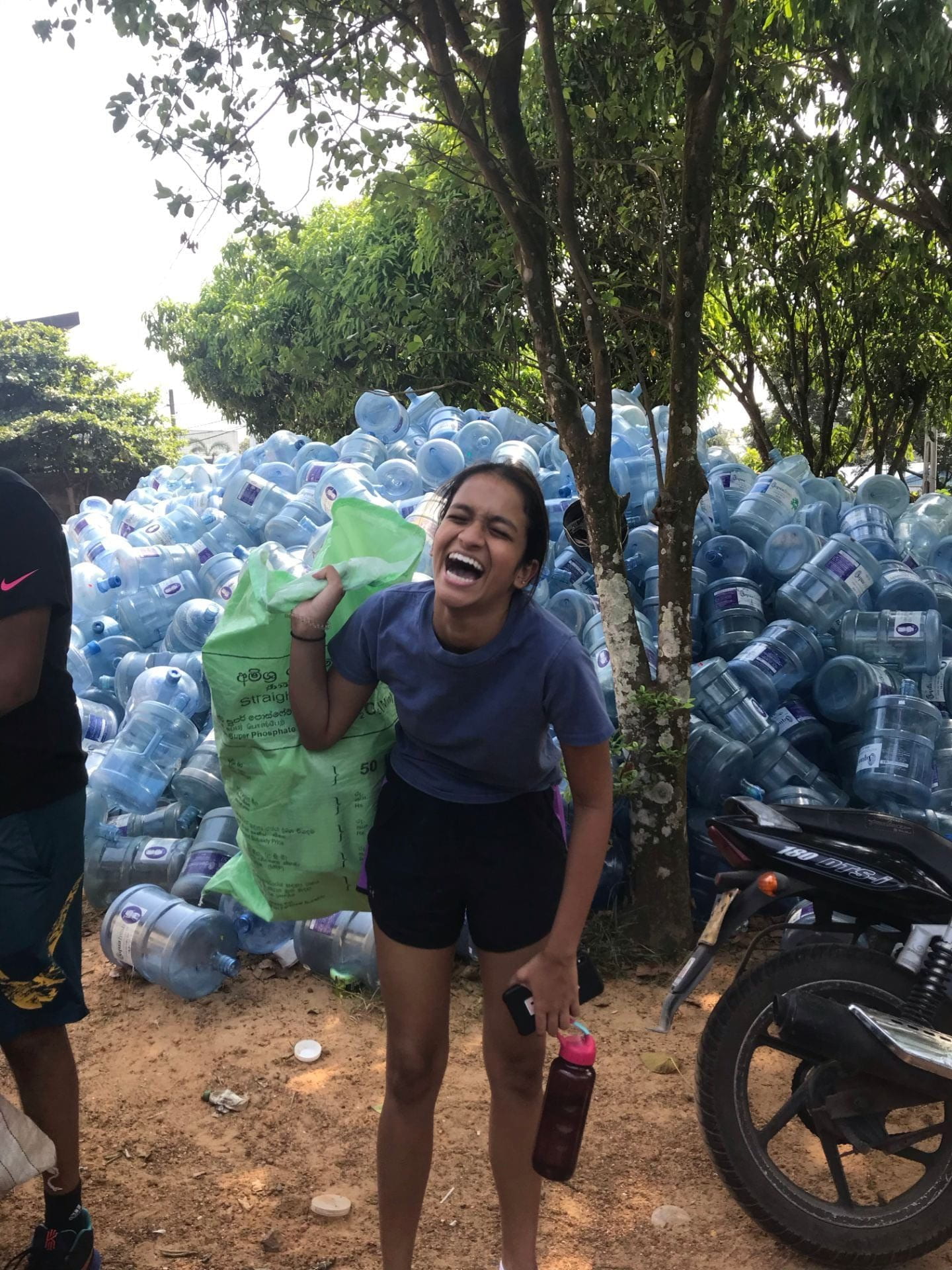On the 7th of February, our geography class went to the Viridis a plastic recycling plant that has been the leading plastic recycling company for the past 10 years in Sri Lanka. We brought with us the plastic bottles collected at school and the plastic found during the neighbourhood sweep lead by our ReefKeepers service group. Once we arrived at the recycling plant we stepped outside to see mountains of plastic sorted into different piles. We dropped off the bags of plastic before meeting with Nilantha, an employee at Viridis who began talking us through what they do in the recycling plant. The plastic collected comes from all over Sri Lanka, specifically from the South coast, Kandy, Negombo and Chilaw before arriving at Viridis where they sort, clean and cut up plastic into flakes that are sold to companies to reuse. The majority of plastic that is recycled at Viridis is PET bottles although polycarbonate reusable bottes are also given back to the company to reuse.

The recycling process began with sorting all the plastic, this is the most labour-intensive aspect of the process as employees individually pick and sort according to colour, shape, size and type. Plastics that are mixed with acids and minerals are non-recyclable, a solution Viridis found for this is by setting the plastic into cement sculptures. After sorting, all of the plastic is put through a machine that removes labels, the labels are then sent to various cement companies to incinerate. The plastic is then sent through a machine that cuts the plastic into flakes or put through a different machine to create plastic fibres (hairs on brushes/brooms). Then the plastic gets washed in large buckets before being set out to dry. Finally, the plastic is packaged and sent to different companies.

A majority of the companies that Viridis exports recycled plastic flakes and fibres were China but also India, Pakistan, South Korea and Taiwan for producing brushes, brooms, buckets, shoe racks etc.; the fibres are used mainly for brushes and brooms. After China banned all imports of solid waste such as plastics, paper products, textiles, etc. in 2018, exports of recycled plastic Viridis were not accepted in China despite it not being solid waste. As Viridis is a profit-based company, losing this major customer had a severe impact on the company. This could be seen through the increase in piles of unrecycled plastic in comparison to the previous years. As well as that, the price that the recycled plastic is sold for fluctuates with the prices of petroleum as companies are likely to use virgin plastic when petroleum prices are cheaper causing Viridis to have to adjust their prices accordingly.

Despite recycling the plastic from numerous companies, Viridis has not gained support from the government or individual companies. It is mainly local recyclers and collection points that provide the greatest contribution to the Viridis company. As a leader of the ReefKeepers service group this experience showed us the impact that plastic has on our environment, the huge amounts of plastic consumption within our community and the difficulties faced when repurposing plastic. It brings to light the problems with solid waste management within Sri Lanka and on a global scale. Hopefully in the future our ReefKeepers service group can work with Viridis on this cause.

LEARNING OUTCOMES:
- The process of plastic recycling and the final outcome of what it produces (and its limitations)
- I learnt the difficulties that recycling plants face when attempting to gain support from large corporations
- I learnt about different kinds of plastics and how best to dispose of waste